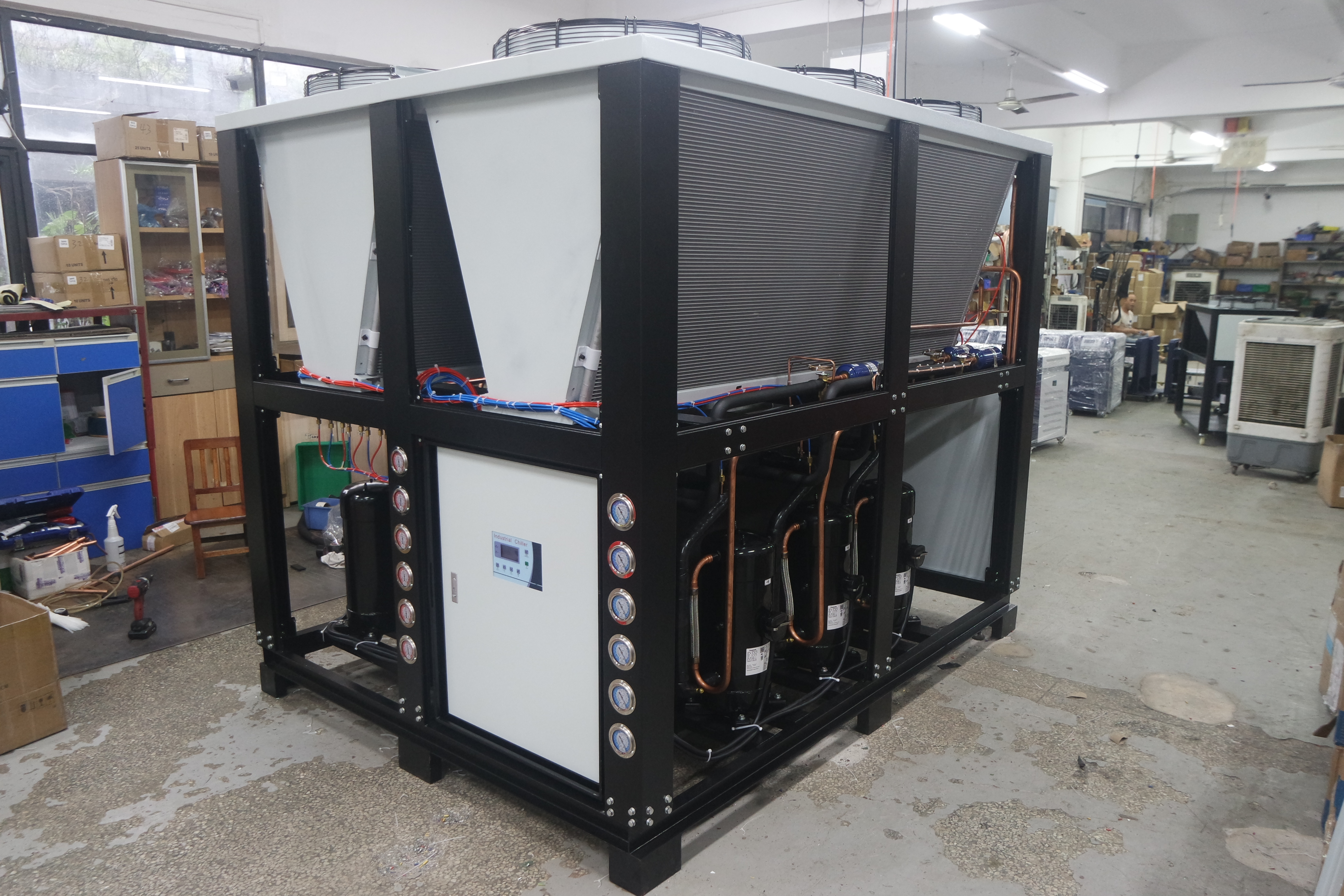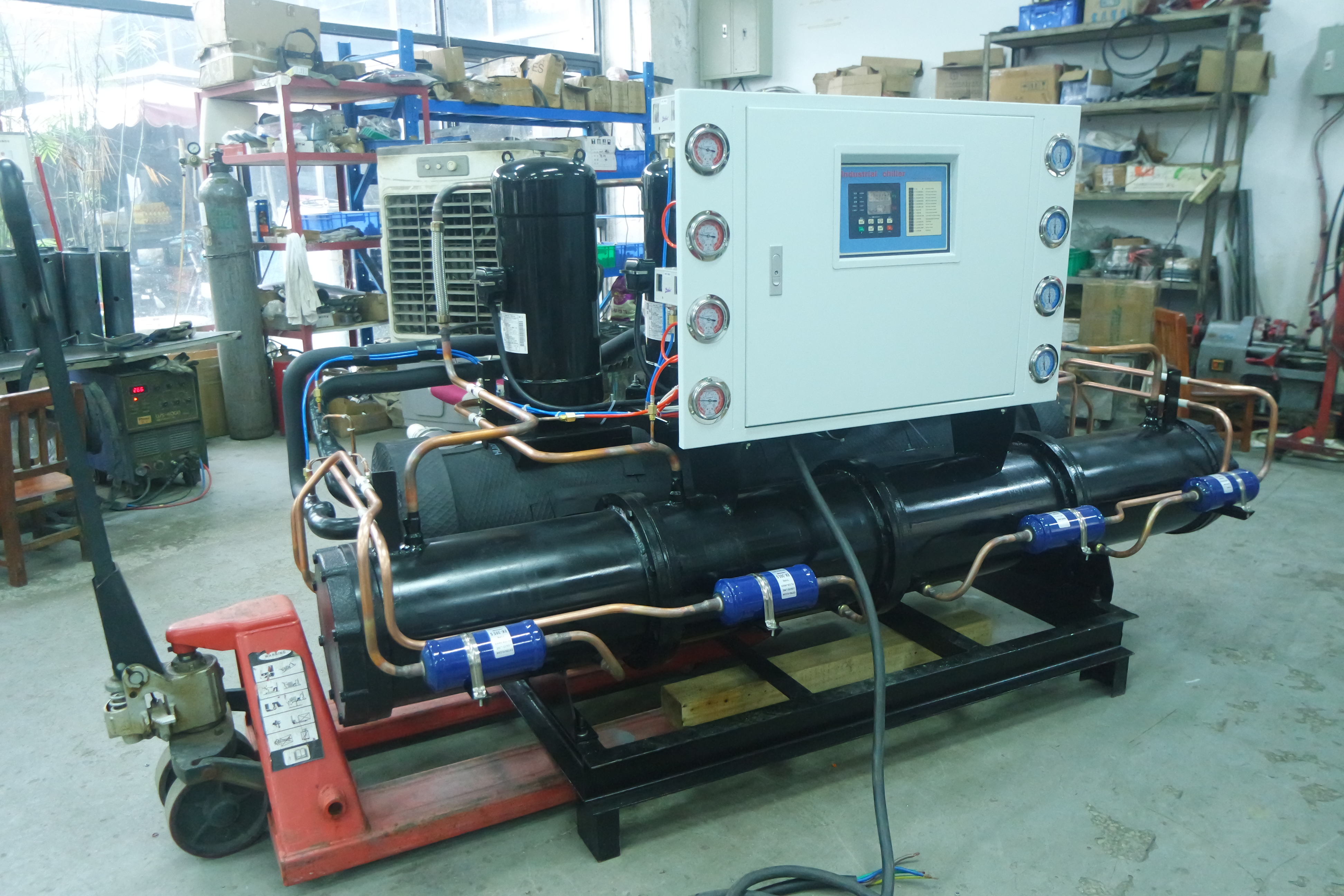This article was last revised in 373 Days ago, some of its contents may have changed. If you have any questions, you can ask the author。
In the fields of industrial refrigeration and commercial temperature control, air-cooled chillers play a crucial role. With unique heat dissipation advantages and flexible installation features, they are suitable for a variety of working conditions. Today, let's delve into the types of air-cooled chillers to help you understand the differences between each type and make an accurate choice.
1. Air-cooled Scroll Chillers: Pioneers of High Efficiency and Energy Saving

The scroll compressor is the "heart" of the air-cooled scroll chiller. It operates smoothly with low noise and is mostly applied in small and medium cooling capacity scenarios, such as small data rooms in office buildings for cooling cabinets. It has a compact structure with fewer components, making maintenance convenient. Its energy consumption is 10% - 15% lower than that of similar products, meeting the needs of projects pursuing low operating costs. In the cooling capacity range of 5 - 50RT (refrigeration tons), the refrigeration efficiency curve is stable. Some high-end models adopt intelligent variable frequency scroll technology to adjust the rotation speed according to the load, with a constant temperature accuracy of ±0.5℃, ensuring the stable operation of the equipment.
2. Air-cooled Screw Chillers: Champions of Large Capacity
For large factory workshops and central air-conditioning systems in commercial complexes, air-cooled screw chillers shine. The twin-screw compressor has symmetrical meshing, enabling continuous and efficient suction, compression and exhaust. The refrigeration capacity ranges from 50 - 500RT. In large supermarkets for summer cooling, it can continuously output cooling capacity to ensure a comfortable shopping environment. The specially designed oil separation system has a separation efficiency of over 99%, ensuring the purity of the refrigerant and high heat exchange efficiency. Paired with an efficient finned condenser, it dissipates heat quickly. Even in high-temperature summers, it can stably refrigerate under full load, with strong durability and a service life often exceeding 15 years.
3. Key Considerations for Selection: Matching Working Conditions Is of Paramount Importance
When selecting an air-cooled chiller, first of all, pay attention to the cooling capacity and accurately calculate the heat load of the site. For workshops with high temperatures in summer and a large number of equipment, a 10% - 20% margin should be reserved. Secondly, consider the operating environment. In places with much dust or high salt fog near the seaside, choose models with strong protection and corrosion-resistant shells and heat exchangers. In areas sensitive to noise, such as those near schools and residential areas, air-cooled scroll chillers or low-noise modular chillers are preferred. In terms of budget, balance the initial investment and long-term energy consumption. Piston chillers have a low entry cost, while screw chillers are excellent in long-term energy conservation. Make a comprehensive consideration to determine the most suitable model to ensure worry-free refrigeration and maximum benefits.
Air-cooled chillers come in diverse types, each with its own specialties. Only by carefully screening according to cooling capacity, working conditions and budget can they be put to full use, building a solid "cold" defense line for production and daily life and steadily riding the "express train" of efficiency in the temperature control field.
